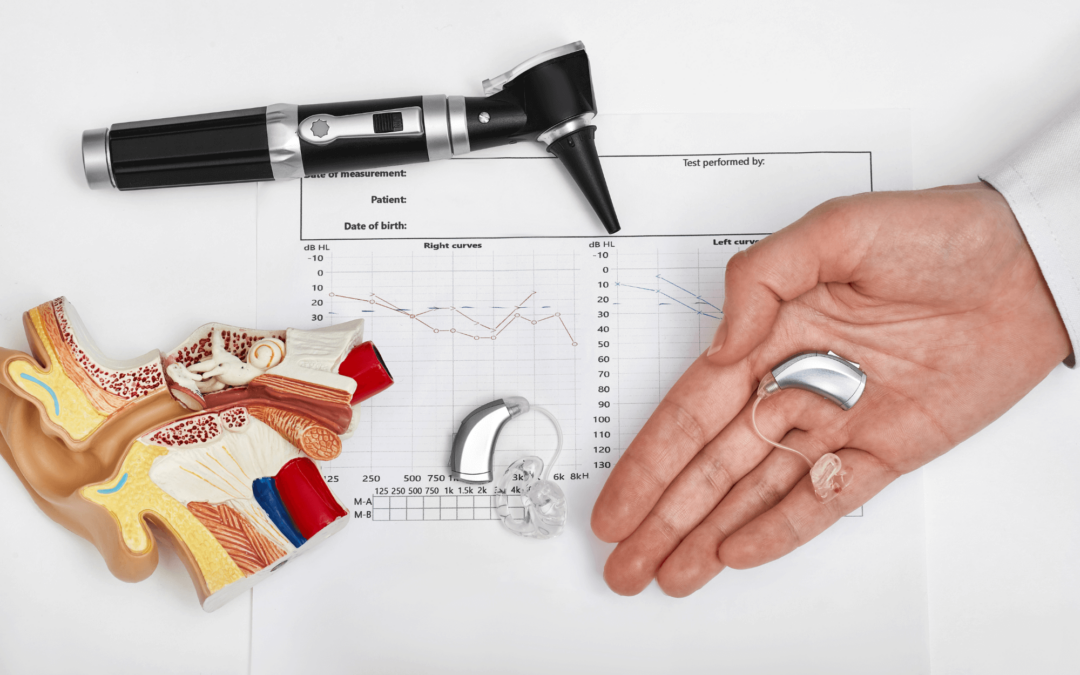Hearing loss is an invisible but significant barrier to communication and quality of life for millions of people worldwide. Fortunately, advancements in hearing loss prevention, diagnosis, and management have opened new doors to better hearing health. As hearing professionals, our mission is to help individuals make informed decisions about their hearing aid updates. In this article, we will explore the importance of early detection, the latest innovations in hearing care, and when to consider updating your hearing aids.
The Importance of Early Detection
Early detection of hearing loss is crucial. It allows for timely intervention, which can significantly improve outcomes and quality of life. Research has shown that untreated hearing loss can lead to social isolation, depression, cognitive decline, and a decreased ability to maintain employment. The sooner we address hearing issues, the better the chances of preventing these secondary complications.
With advances in screening techniques and the increasing awareness of the impact of hearing loss on overall health, early detection has become more achievable. Audiologists now utilize state-of-the-art equipment to diagnose hearing loss accurately. Audiometric tests, including pure-tone audiometry and speech audiometry, help determine the type and degree of hearing loss. Early diagnosis empowers individuals to take control of their hearing health.
Innovations in Hearing Loss Prevention
The adage “prevention is better than cure” is particularly relevant when it comes to hearing loss. Recent research has illuminated the significance of taking proactive measures to protect our hearing. Noise-induced hearing loss (NIHL), for instance, is preventable by adopting certain precautions:
Hearing Protection:
The use of earplugs or earmuffs in noisy environments can significantly reduce the risk of NIHL. Today, there are advanced, custom-fit options that offer a comfortable and effective solution for those who work in high-noise environments.
Limiting Exposure:
Limiting exposure to loud sounds, such as through volume control on personal audio devices, is a simple but effective preventive measure. The World Health Organization (WHO) recommends a daily safe listening time of 1 hour at 100 dB to protect your hearing.
Regular Hearing Screenings:
Routine hearing screenings, even in the absence of apparent hearing issues, are vital in monitoring your hearing health. Early detection of hearing loss can lead to timely interventions.
Advancements in Diagnosis
Modern diagnostic tools and techniques have revolutionized the way we diagnose and understand hearing loss. Audiologists are now better equipped to pinpoint the underlying causes of hearing issues and tailor treatment plans to each individual. Some recent advancements include:
Otoacoustic Emissions (OAEs):
OAEs are sounds generated by the inner ear when it is stimulated by sound. These emissions can be measured and used to identify the function of the cochlea, providing valuable diagnostic information.
Digital Audiometry:
Digital audiometry allows for more precise hearing evaluations by enabling customizable test configurations and quick data analysis. This helps us create personalized hearing profiles for our patients.
Tele-audiology:
The advent of tele-audiology has made hearing assessments more accessible. Patients can undergo hearing evaluations remotely, allowing for timely diagnosis and treatment.
Comprehensive Tinnitus Evaluation:
Tinnitus often accompanies hearing loss, and understanding its causes is a key part of a thorough diagnosis. Recent advancements allow us to conduct detailed evaluations, leading to more effective tinnitus management.
Hearing Aid Technology and Updates
Hearing aids have come a long way in recent years, evolving into high-tech marvels that provide better hearing and enhanced comfort. Knowing when to update your hearing aids depends on various factors:
Hearing Aid Age:
As a general guideline, hearing aids should be evaluated for updates every 3-5 years. However, technological advancements may prompt earlier upgrades.
Lifestyle Changes:
Significant lifestyle changes, such as a new job or increased social engagement, may require hearing aid adjustments or updates to better suit your needs.
Technological Advancements:
Keep an eye on the latest innovations in hearing aid technology. Features like Bluetooth connectivity, noise reduction, and directional microphones can significantly enhance your hearing experience.
Maintenance and Repairs:
If your current hearing aids require frequent repairs or have substantial wear and tear, it might be time to consider an update.
Hearing Changes:
Regular hearing evaluations can help monitor changes in your hearing health. If your hearing loss progresses, updating your hearing aids may be necessary to ensure optimal hearing.
The Future of Hearing Care
Looking ahead, the future of hearing care holds even more promise. Researchers are exploring groundbreaking interventions, such as gene therapy, to address certain types of hearing loss. Furthermore, improved hearing aid designs, including smaller and more discreet options, are on the horizon.
As hearing professionals, we are dedicated to staying at the forefront of these developments to provide our patients with the best possible care. Early detection remains the linchpin of successful hearing care, as it ensures timely interventions and the ability to take advantage of emerging treatments.
Hearing loss is a pervasive issue that can impact all aspects of life. Advances in prevention, diagnosis, and hearing aid technology offer hope for those affected by hearing loss. Early detection and proactive prevention are crucial steps in maintaining good hearing health. Regular hearing evaluations, coupled with awareness of the latest advancements in hearing aid technology, will empower individuals to make informed decisions about when to update their hearing aids. The future of hearing care holds exciting possibilities, and our mission as hearing professionals is to help you navigate the journey to better hearing.


